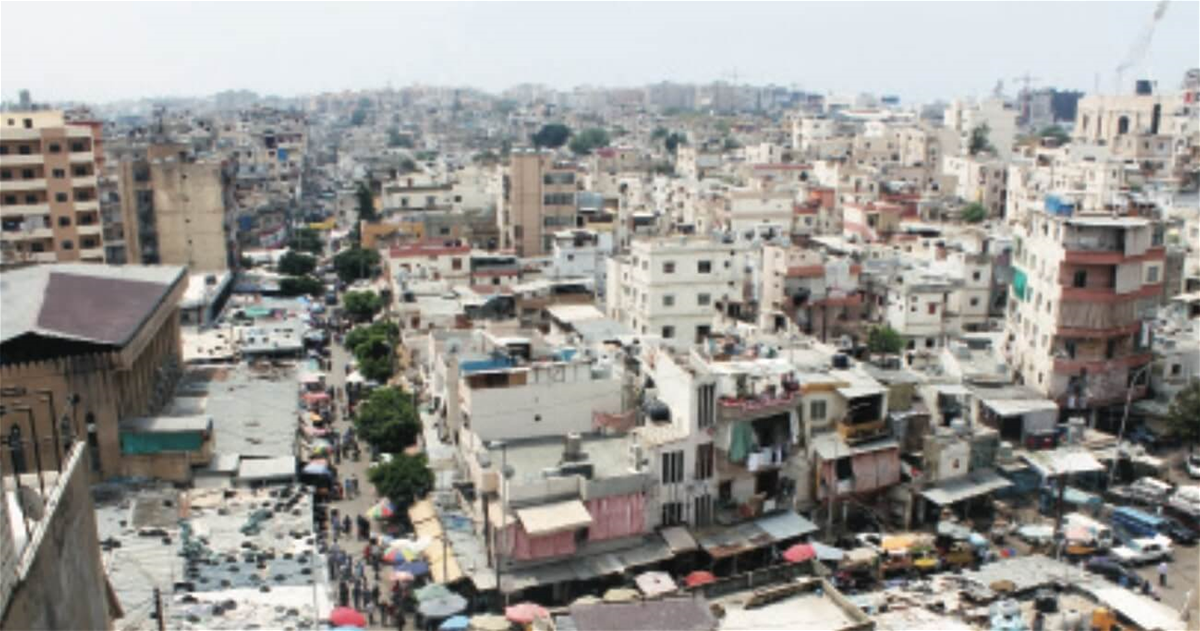You have to get his approval before undertaking anything. He alone is the decision maker in the entire camp. For instance, you see him there if you wish to offer aid. He could deprive certain families from getting aid if he deems them undeserving of assistance. Sometimes he proceeds to distribute the aid directly and does not allow you to supervise... Whether it has been distributed properly or not.
In short, he is the President of the Republic of each camp. He is in charge and the most powerful decision maker there. He is appointed in one of several ways. The shawish may take on lease a plot of land from an owner and set up tents there. He then brings refugees there and supervises taking the rent from them, of course we are talking here of rent between USD 100 and USD 200 for each tent and naturally he takes a large portion of the profits. The shawish can also be appointed by the property owner directly without a lease contract as a supervisor of the situation in the camp, hereby giving him full powers to act in relation to any person in the camp. He has the right to use his discretion in rejecting people, allowing them to stay or giving them aid, etc. Zaher is «a young Syrian man who works in volunteer relief work». It is sometimes difficult for him to distribute aid in some camps, as the shawish does not allow it for various reasons. According to Zaher, «the reasons vary between one camp and another. There’s the shawish who wants us to give him a quarter of what we distribute and only distribute the rest to the camp residents. Of course the camp residents cannot object to this. I don’t accept it and dupe him. I wait for the residents of his camp in another camp to distribute the aid and assistance to them. Then you find another shawish who insists on distributing the aid himself. As a result, he discriminates between the residents of the camp. Sometimes he deprives some of them depending on his personal mood. So, I don’t deliver aid to him and sometimes the residents of the camp are deprived of aid on his account.»
The policy of deciding the fate of many of the displaced families is not confined to the adults, but applies to children too. In one of the camps in Bar Elias in the Beqaa in Lebanon, a shawish prevented the children of his camp from going to a school that had undertaken to provide free education to all children who go there. The children of that camp were forced to go to a different school that was on hire to pursue their academic education as the shawish had a share of the fees paid by the students there.
Many are the stories circulating about the shawish and his excesses and many are the testimonies that camp residents are afraid of talking publicly about for fear of expulsion from the camp. After all those same refugees who fled a life of shelling and the Syrian inferno, a life of repression and arrests, and rebelled against it, are today at the mercy of another authority that is exercising the same role but within the grip of «controlling the aid».
There is no place here for revolution and rebellion. They have to adapt to the status quo. The camps’ residents see the discrimination during distribution of aid and realize that the shawish has the final word on the legitimacy of their stay at the camp. And although they know all the excesses against them, they choose to keep quiet and avoid making media statements about this issue. Most of their replies when asked about the role of the shawish come down to: «We have to be patient and endure this until we can go back to Syria. We are now in a position of weakness and cannot claim our rights. But when we go back, we’ll get to call the tune.» The camp shawish knows that camp residents are helpless and he also knows that there is no authority to protect them from his tyranny, even using it sometimes to his advantage. In one of the camps in Tripoli in Lebanon, the shawish prevented all children of his camp from receiving an education because one of the schools would not pay him the sum of USD 8,000. And when one of the parents objected, the shawish threatened to hand him over to the Lebanese authorities under the pretext that he has no ID documents or «residency permit in Lebanon». As a result, he risked being imprisoned for a long time. It is a widely known fact that Syrian refugees do not have residency permits due to the complex procedures and the high cost of the required sponsorship.
Despite all that has been mentioned above, there are camp residents who praise the shawish. This is owing to his good temperament and management of the camp and his good and just treatment of them, in addition to distributing both financial and food aid equally among them. Unfortunately, these remain a minority who can be counted on the fingers of one hand amidst a general policy that decides the fate of Syrian refugees at its discretion.
